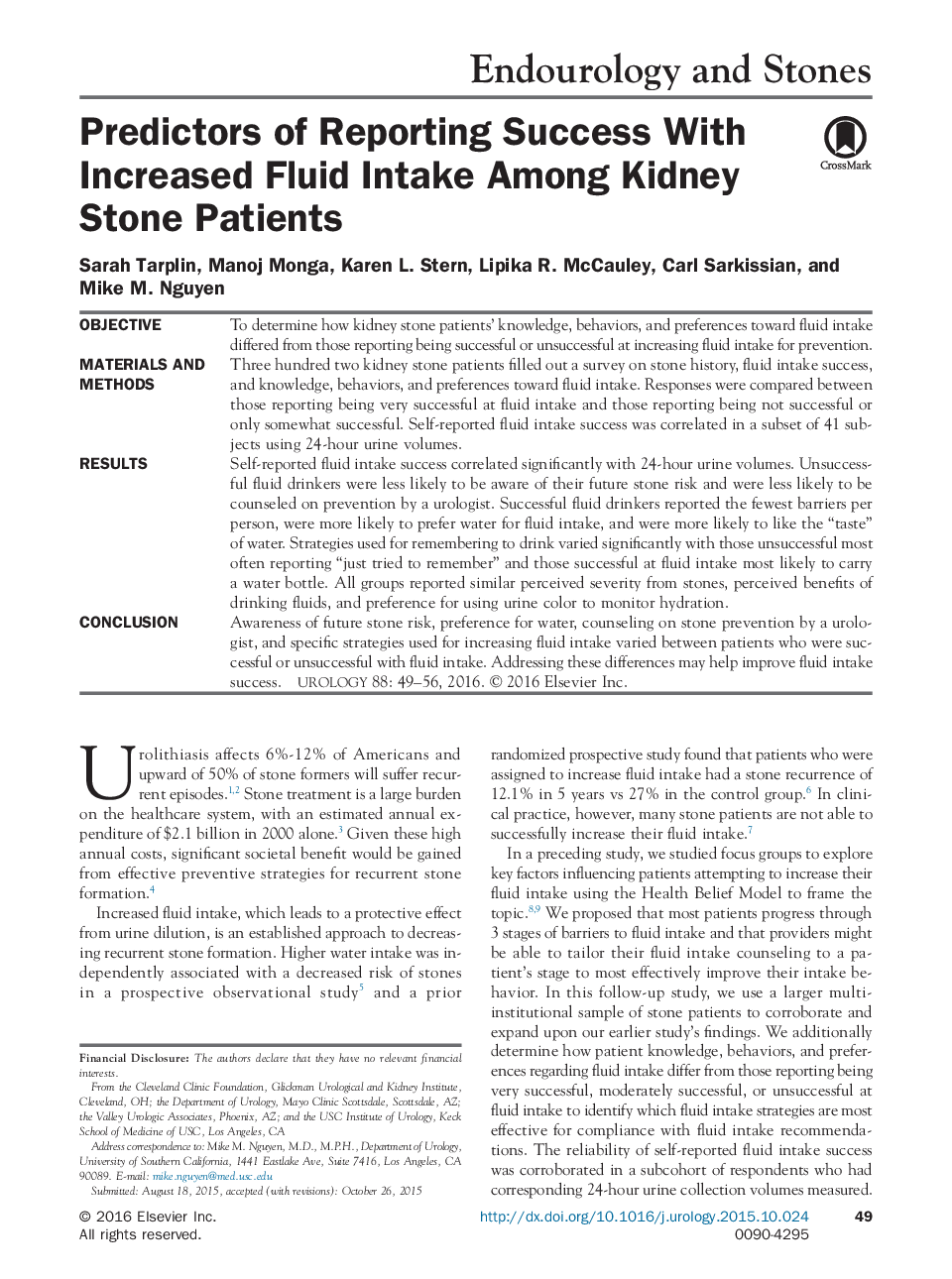| Article ID | Journal | Published Year | Pages | File Type |
|---|---|---|---|---|
| 3898323 | Urology | 2016 | 8 Pages |
ObjectiveTo determine how kidney stone patients' knowledge, behaviors, and preferences toward fluid intake differed from those reporting being successful or unsuccessful at increasing fluid intake for prevention.Materials and MethodsThree hundred two kidney stone patients filled out a survey on stone history, fluid intake success, and knowledge, behaviors, and preferences toward fluid intake. Responses were compared between those reporting being very successful at fluid intake and those reporting being not successful or only somewhat successful. Self-reported fluid intake success was correlated in a subset of 41 subjects using 24-hour urine volumes.ResultsSelf-reported fluid intake success correlated significantly with 24-hour urine volumes. Unsuccessful fluid drinkers were less likely to be aware of their future stone risk and were less likely to be counseled on prevention by a urologist. Successful fluid drinkers reported the fewest barriers per person, were more likely to prefer water for fluid intake, and were more likely to like the “taste” of water. Strategies used for remembering to drink varied significantly with those unsuccessful most often reporting “just tried to remember” and those successful at fluid intake most likely to carry a water bottle. All groups reported similar perceived severity from stones, perceived benefits of drinking fluids, and preference for using urine color to monitor hydration.ConclusionAwareness of future stone risk, preference for water, counseling on stone prevention by a urologist, and specific strategies used for increasing fluid intake varied between patients who were successful or unsuccessful with fluid intake. Addressing these differences may help improve fluid intake success.
